Application development has become one of the most popular professions today. This helps users and developers in several ways. There are many ways to create applications today, and among Android and iOS platforms.
From previous decade, cross-platform app development has become a favorable approach. Developers across the globe utilize different tools to build native-like mobile apps, and this approach is benefiting them effectively.
Moreover, the volume of mobile apps is increasing every year that emerges the adoption of latest technology stacks. And that’s where cross-platform app development frameworks play a crucial role because it provide several features and benefits to the developers.
In this blog, we will talk about the top cross-platform app development frameworks utilized by the developer communities. But first, let’s talk about their overview and reasons to choose them.
What is a cross-platform app development framework?
In simple terms, cross-platform is a type of software that can run on different computers (like Android, iOS, Windows, Blackberry, etc.). Applications developed within this framework should not be coded separately for each platform. Code it once and you'll have the foundation you need to make your app work on any platform.
It is one of the most popular methods in app development today and almost all the top mobile development companies use it. To expand further, the cross-platform app development company specializes in a versatile and user-friendly design that works seamlessly across multiple operating systems.
By leveraging advanced mobile frameworks and tools, businesses can reduce development time and costs while ensuring a consistent user experience across all platforms.
Why cross-platform app development frameworks are gaining popularity?
Businesses and developers indeed recognize the significance of creating applications that can run seamlessly on multiple operating systems, reaching a broader audience and ensuring a consistent user experience. And hence they choose latest mobile app development technologies to continue their progress.
As mobile devices continue to gain popularity, the demand for cross-platform frameworks is on the rise. These frameworks enable developers to write code once and deploy it across various platforms, which not only saves time and resources but also extends the app's accessibility to a wider user base.
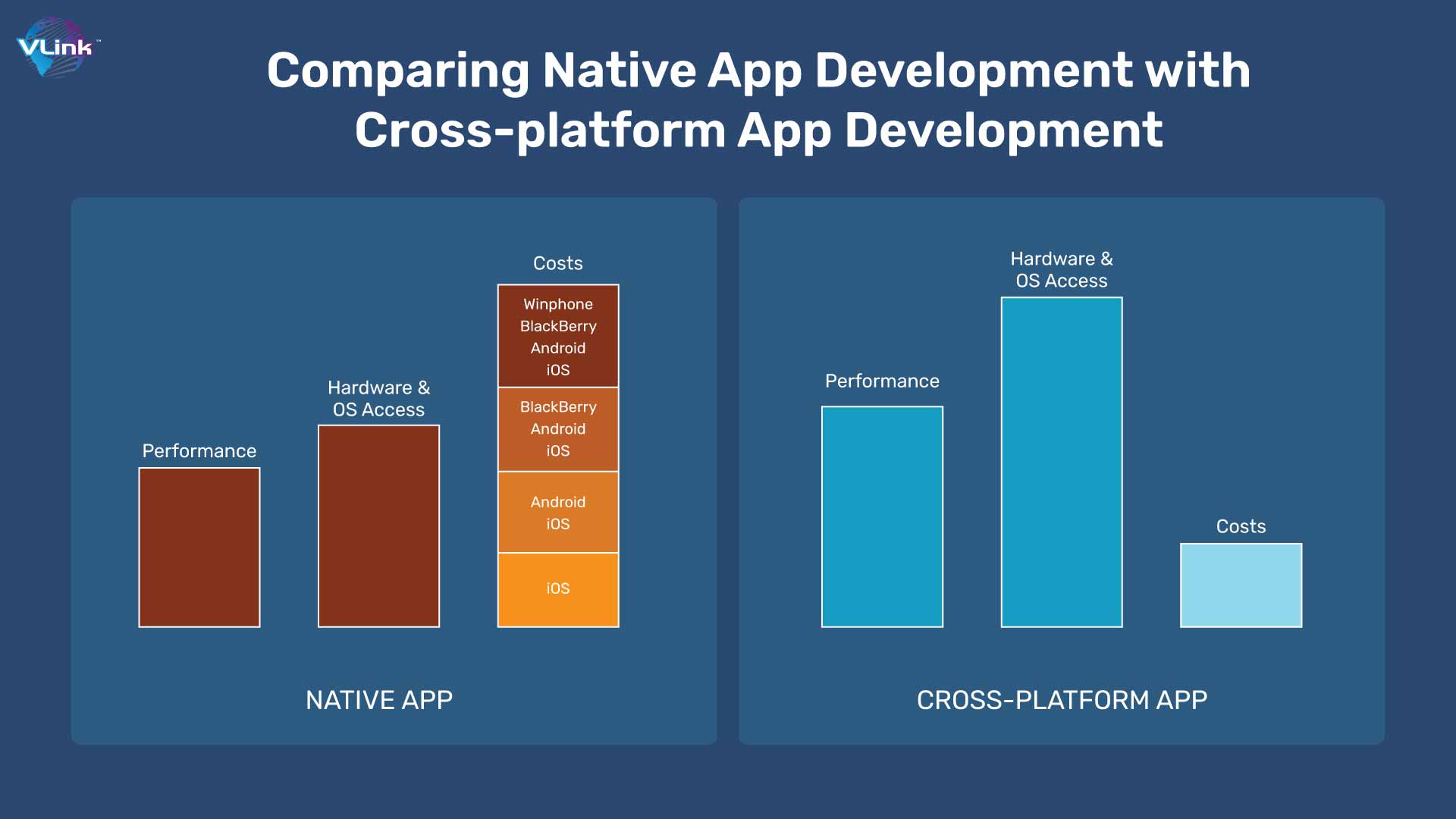
In the competitive mobile app market, speed to market is crucial. Cross-platform frameworks facilitate quicker development by allowing for code and asset reusability, enabling apps to be available on multiple platforms simultaneously. This efficiency in development can help businesses capture consumer attention and gain an edge in the market.
Overall, the adoption of cross-platform app development is a strategic move for businesses looking to maximize their app's reach and impact in today's diverse mobile ecosystem.
Benefits of using cross-platform app development frameworks
Now you know about the cross-platform app development frameworks and how they gained popularity, it’s time to know the benefits (or you can say top reasons to choose them):
A cross-platform mobile development approach allows businesses to build and deploy applications across multiple platforms, including the web. When you create an app, you can target both iOS and Android platforms, thus maximizing your reach.
Cross-platform application development is based on the “write once, run anywhere” concept. Reusable code and agile application development methods and tools can reduce development costs. So, if you want to grow your business across multiple platforms, there is no alternative to cross-platform apps.
Cross-platform app development frameworks help companies to build apps that are compatible to every mobile OS. This makes it easier to manage and deploy your code as changes occur. Save time and money by instantly syncing updates across all platforms and devices.
Additionally, if there is a bug in your code base, you only must fix it once. This saves developers a lot of time and money.
Rapid growth is another win-win situation for platform development. Using a single codebase for multiple platforms can reduce your efforts by 50-80%. This process helps you build a wealthy business in less time. Developer teams can meet deadlines when developing cross-platform applications.
Another advantage of this platform is that the code can be used multiple times. Developers can reuse all code instead of creating new code for each platform. This saves time and resources by eliminating repetitive writing work.
Cross-platform mobile apps are compatible, and many plugins are cloud-integrated. This means that by combining the same code with different plugins and extensions, your application becomes more and more efficient.
As mentioned above, “write once, run everywhere” is followed during cross-platform development. This allows application developers to reduce time to market (TTM) with faster delivery.
Additionally, if the app needs to be updated or changed, developers can make small changes with a single code. This improves customer engagement and allows you to deliver products faster than your competitors.
Users can discover user interface (UI) content and predict interactions across multiple platforms. Therefore, user experience (UX) is an important consideration for any application or software.
It is difficult to synchronize multiple development approaches when creating multiple applications. And cross-platform app development tools are the right fit for the developers to deliver an integrated user experience that app users can enjoy.
5 best cross-platform app development frameworks
Among the several tools (free as well as paid) for mobile app development, cross-platform frameworks are very beneficial for businesses and here is the list you can choose from:
Developed and maintained by Facebook, React Native is a widely used framework for building mobile applications. It allows developers to use JavaScript and React to create native-like experiences on both iOS and Android platforms.
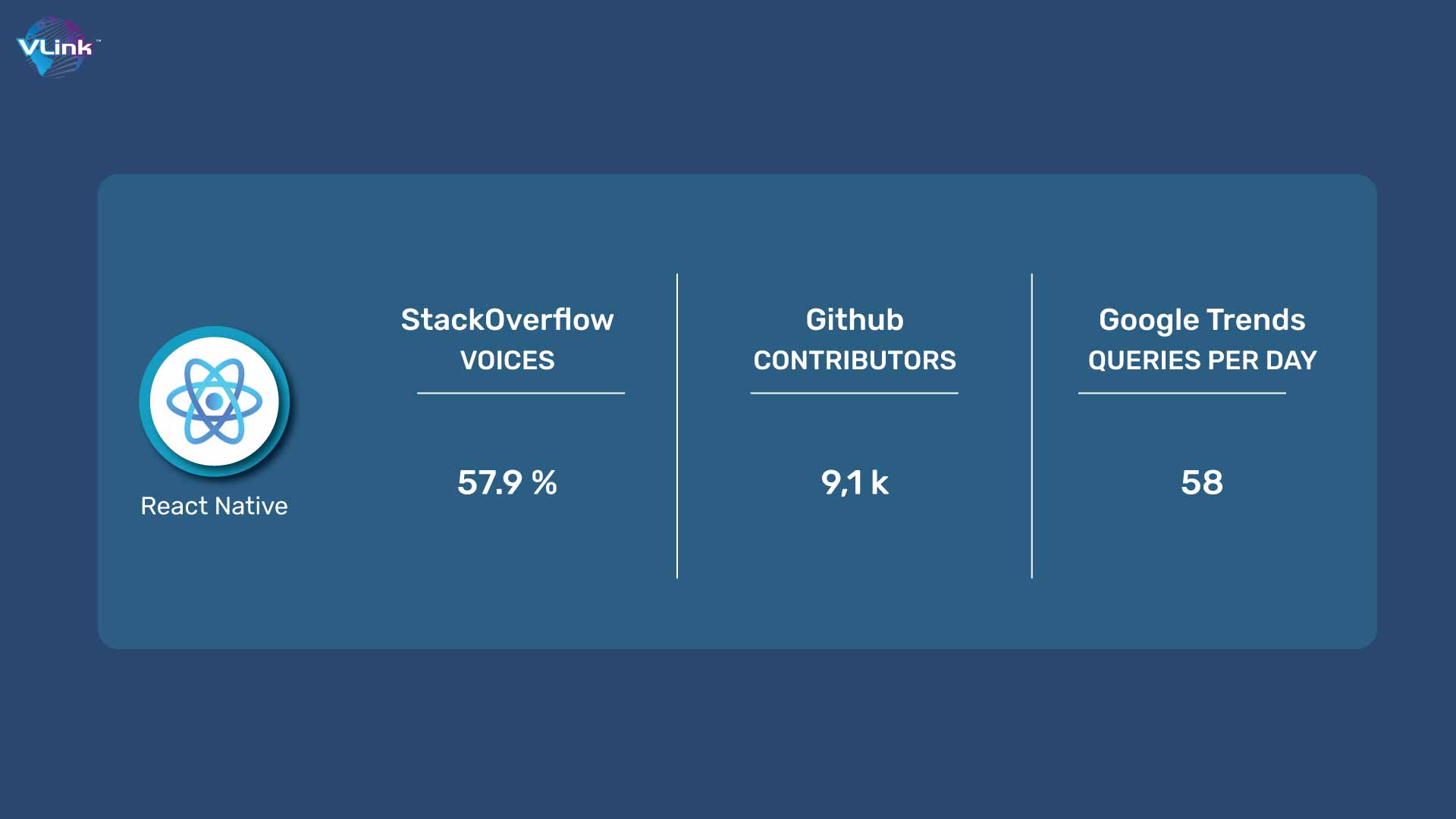 Pros:
Pros:
- Performance: React Native offers near-native performance due to its use of native components.
- Large Community: It has a vast and active community, providing extensive support and a plethora of pre-built components.
- Code Reusability: Developers can write a single codebase for both Android and iOS app development, reducing development time.
- Live Reload: Allows for real-time updates during development, making the debugging process faster.
Cons:
- Limited Native Modules: Some advanced or specialized features may require the development of custom native modules.
- Platform Dependencies: Some platform-specific code may be necessary, reducing the level of abstraction.
Flutter is an open-source UI software development toolkit developed by Google. It enables developers to create natively compiled applications for mobile, web, and desktop from a single codebase. It uses the Dart programming language and Flutter developers ensure to integrate versatile features.
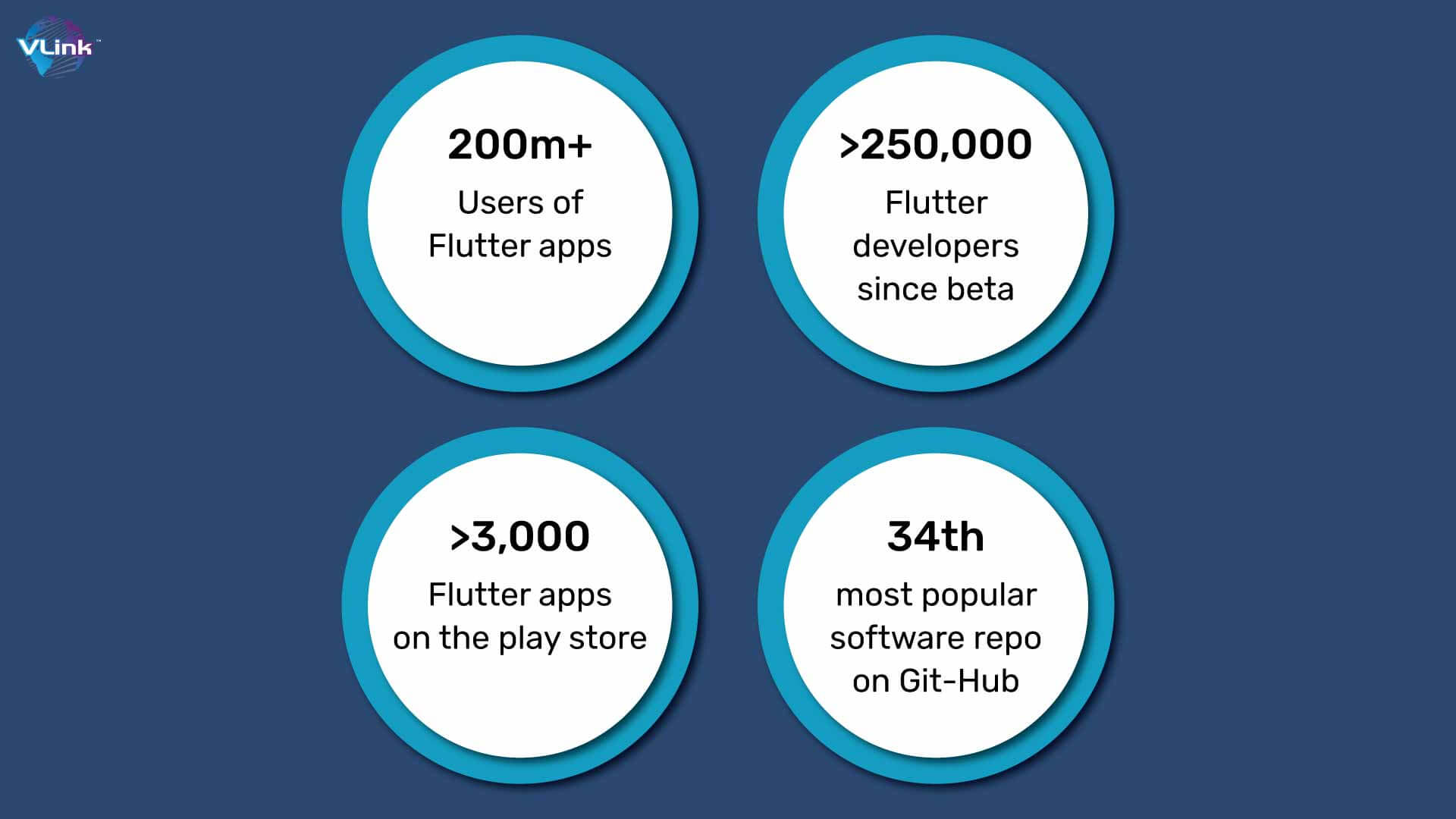 Pros:
Pros:
- Single Codebase: Flutter enables developers to create apps for both iOS and Android using a single codebase.
- High Performance: Apps built with Flutter can achieve near-native performance due to the use of Skia graphics engine.
- Rich Set of Widgets: Flutter offers a vast library of customizable widgets, simplifying UI development.
- Hot Reload: Allows for real-time updates and UI changes, making development more efficient.
Cons:
- Large App Size: Flutter apps can have a larger file size compared to some other frameworks.
- Learning Curve: Developers may need to learn the Dart programming language, which may not be as widely adopted as JavaScript.
- Limited Native Features: Some advanced native features may require platform-specific code.
Xamarin is an open-source platform for building modern and performant applications for iOS, Android, and Windows with .NET and C#. It provides a comprehensive set of tools and libraries for cross-platform development.
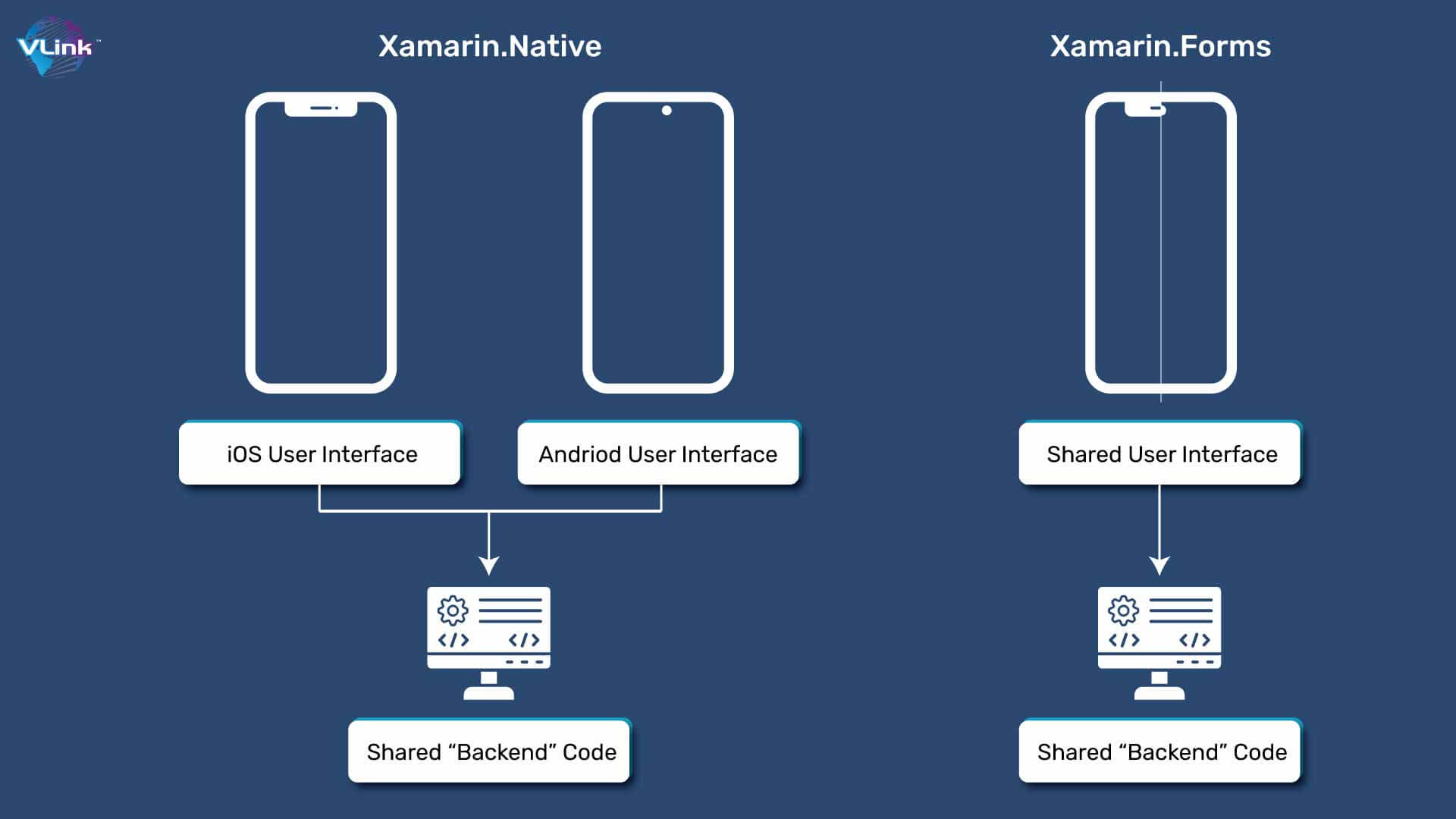 Pros:
Pros:
- Native Performance: Xamarin provides near-native performance since it allows direct access to native APIs.
- Full Access to Native APIs: Developers can access all native APIs and features, providing high flexibility.
- Strongly Typed Language: Developed with C#, which is a statically typed language, reducing potential runtime errors.
- Mature Ecosystem: Xamarin has a mature ecosystem and extensive community support.
Cons:
- File Size: Xamarin apps can have larger file sizes compared to some other frameworks.
- Learning Curve: Developers need to be familiar with C# and the .NET ecosystem.
- Limited Open-Source Components: The availability of open-source components may be more limited compared to other frameworks.
Ionic is a popular open-source framework for building cross-platform mobile applications using web development technologies such as HTML, CSS, and JavaScript. It's known for its ease of use and the ability to create high-quality apps with a native look and feel.
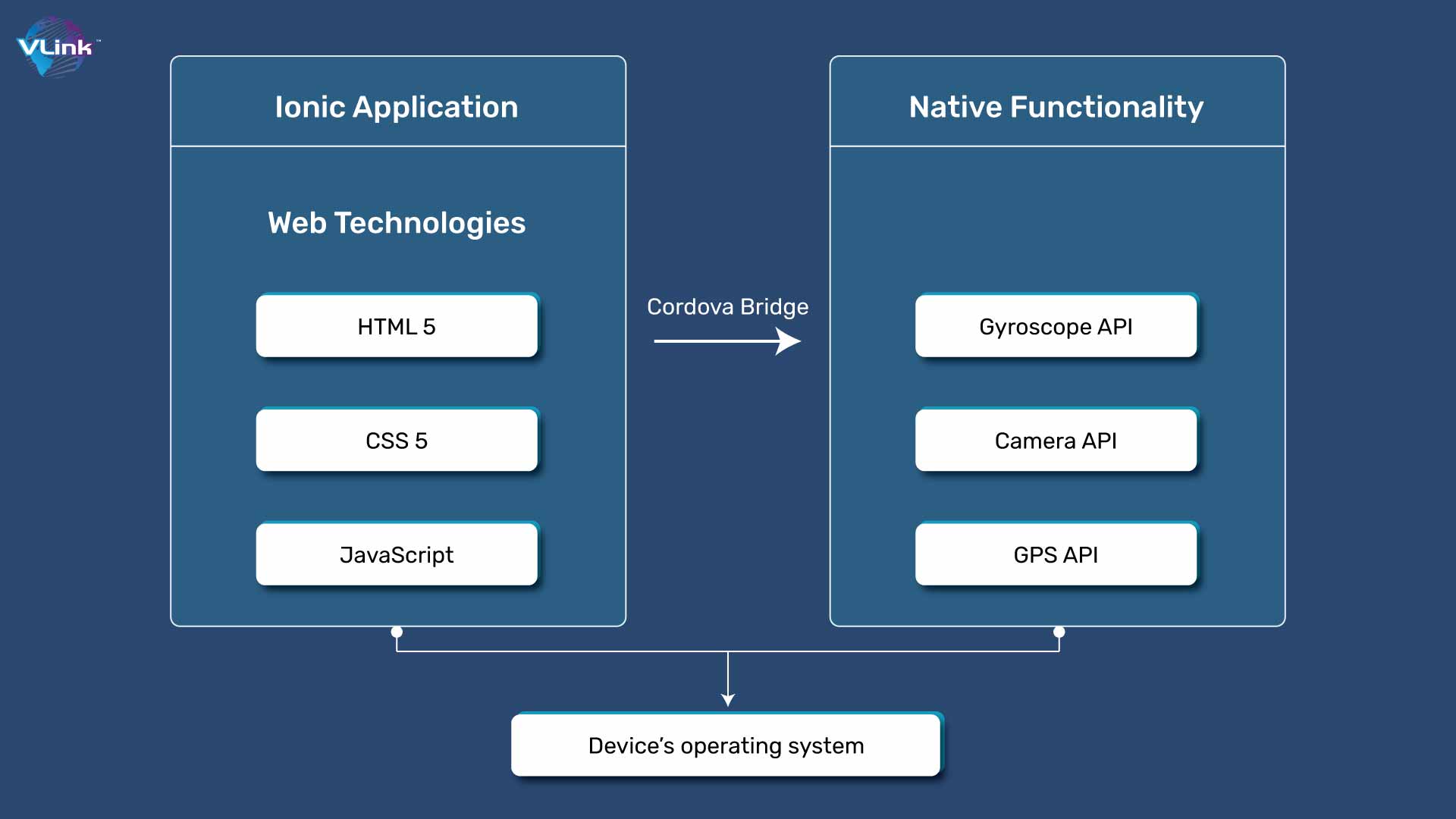 Pros:
Pros:
- Web Technologies: Developed using web technologies (HTML, CSS, JavaScript), making it accessible to a broad developer base.
- Fast Development: Allows for rapid development with a wide array of pre-built UI components.
- Access to Cordova Plugins: Leverages Cordova for accessing native device features.
- Cost-effective: It's a cost-effective option for startups and smaller businesses.
Cons:
- Performance: Not as performant as some other frameworks due to the use of web technologies.
- Dependence on WebViews: Reliance on WebView may lead to performance issues on older devices.
- Limited Native Features: Some advanced native features may require additional customization.
PhoneGap, now known as Apache Cordova, is an open-source framework for building mobile applications using standard web technologies like HTML, CSS, and JavaScript. It allows developers to wrap their web code in a native container for distribution on app stores.
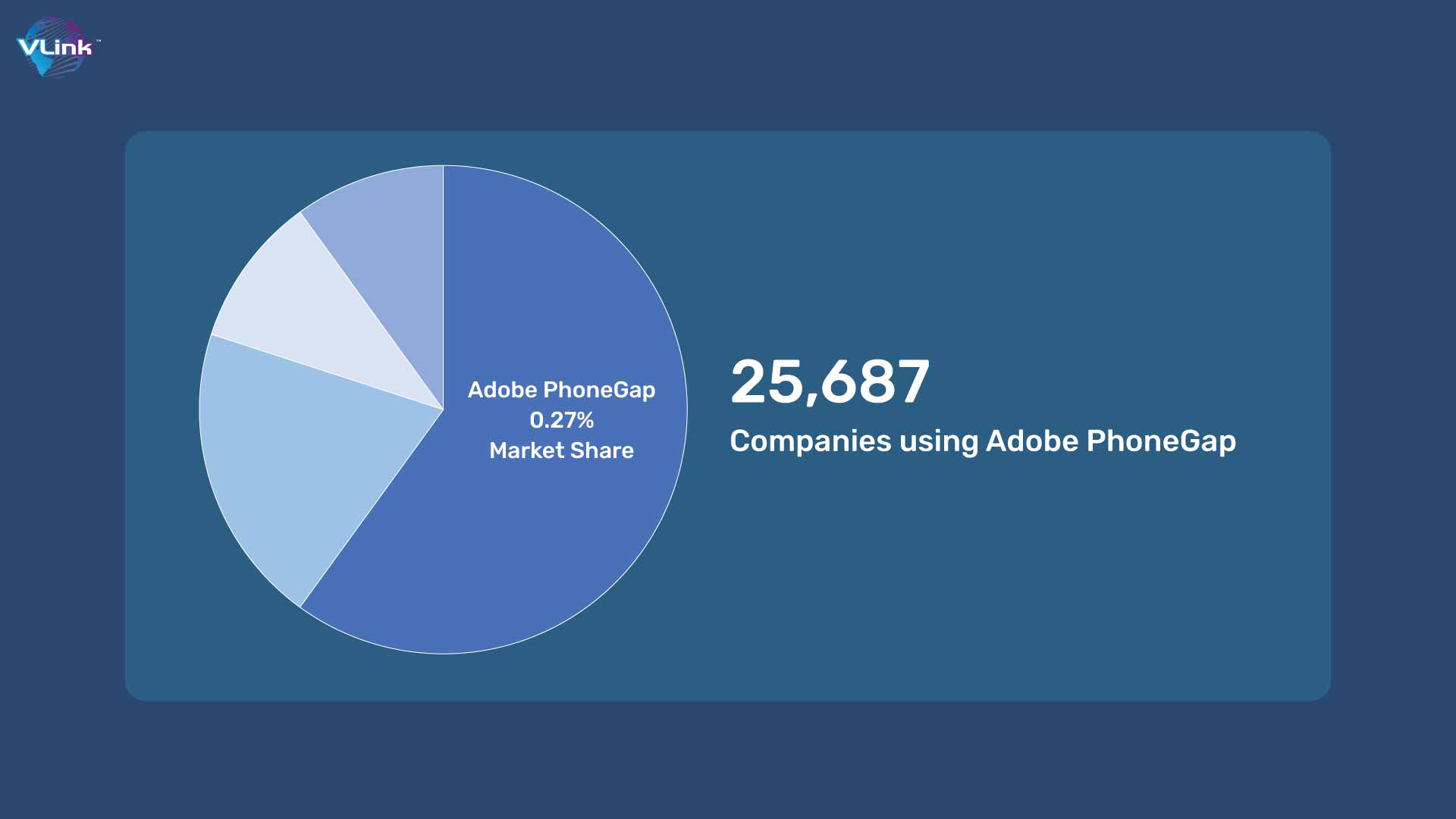 Pros:
Pros:
- Web Technologies: Uses standard web technologies, making it accessible to a wide range of developers.
- Access to Native Features: Can access device features through plugins, providing native-like functionality.
- Rapid Development: Offers a quick development cycle with a focus on web standards.
Cons:
- Performance: Performance may not be as high as native apps, especially for complex applications.
- Limited UI/UX Control: May not offer the same level of control over UI/UX as native development.
- Dependency on Plugins: Relying on plugins for native features can introduce potential compatibility issues.
VLink’s cross-platform app development approach
Cross-platform mobile app development is indeed a transformative approach for businesses looking to expand their mobile presence. It offers several advantages that can benefit both developers and entrepreneurs.
At VLink, we take a client-centric approach by thoroughly understanding your business needs and requirements before recommending a suitable tech stack for your project. This approach is made possible by our extensive experience with a wide range of technologies, enabling us to make informed decisions to meet the unique demands of each project.
In an increasingly digital world, cross-platform applications have become crucial for reaching a broader and more diverse audience. They can serve as a valuable tool to help businesses transition to the online space effectively. Our team of experts can assist in cross-platform app development tailored to your specific needs, enhancing your business's online presence.
In summary, cross-platform mobile app development is a game-changing strategy for businesses seeking to reach a wider audience and reduce development costs. VLink is well-equipped to help you harness the potential of cross-platform apps, ensuring that your business can thrive in the ever-evolving digital landscape.





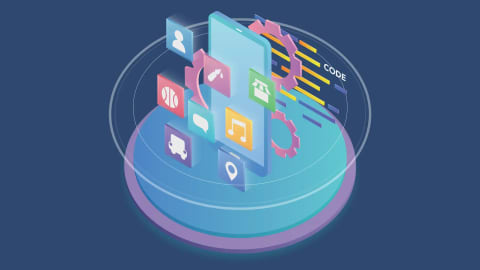


 Shivisha Patel
Shivisha Patel

















